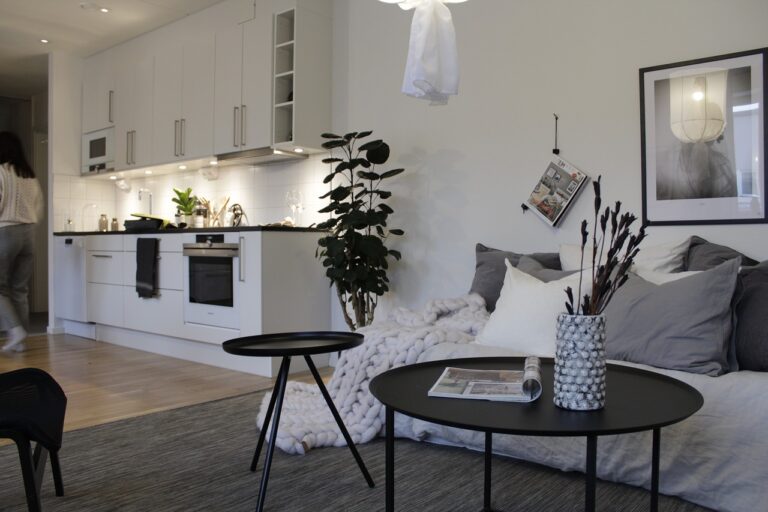The Psychology of Light: How Blinds Affect Mood
allpanel mahadev, lotus 365.fun login, all panel login: The Psychology of Light: How Blinds Affect Mood
Light is a powerful force that can have a significant impact on our mood and overall well-being. From the brightness of the sun to the soft glow of a lamp, light plays a crucial role in regulating our circadian rhythms and influencing how we feel throughout the day. However, one often overlooked factor in how light affects us is the presence of blinds in our environment.
Blinds are not just practical window coverings that provide privacy and control over sunlight; they also have a psychological impact on our mood and emotions. In this article, we will explore the psychology of light and how blinds can affect our mood in various ways.
The Importance of Light in Our Lives
Before delving into how blinds affect our mood, it’s essential to understand the importance of light in our daily lives. Natural light, in particular, is crucial for regulating our circadian rhythms, which are the internal clock that governs our sleep-wake cycle. Exposure to natural light during the day helps to signal to our bodies when it’s time to be awake and alert, while darkness at night triggers the production of melatonin, a hormone that helps us sleep.
In addition to regulating our sleep-wake cycle, light also plays a role in influencing our mood and emotions. Research has shown that exposure to natural light can improve mood, increase energy levels, and reduce feelings of depression and anxiety. On the other hand, a lack of natural light has been linked to symptoms of seasonal affective disorder (SAD), a type of depression that occurs during the darker months of the year.
How Blinds Affect Mood
Blinds can have a significant impact on how light enters a space and, consequently, how it affects our mood. The type of blinds, their color, and how they are used can all influence how much natural light is allowed into a room and how it is diffused. Here are some ways in which blinds can affect our mood:
1. Light Control: One of the primary functions of blinds is to control the amount of light that enters a room. By adjusting the slats or pulling the blinds up or down, we can regulate the level of natural light in a space. This control over light can help create a cozy and comforting atmosphere or a bright and energizing environment, depending on our preferences.
2. Privacy: Blinds also provide privacy by blocking the view from outside. Feeling exposed can trigger feelings of vulnerability and anxiety, so having the option to close the blinds can help us feel more secure and at ease in our own space.
3. Mood Regulation: The amount and quality of light in a room can influence our mood and emotions. Bright, natural light has been shown to enhance mood, increase alertness, and improve productivity, while dim or artificial light can have a relaxing and calming effect. By adjusting the blinds to let in the right amount of light, we can create a mood-boosting environment that suits our needs.
4. Aesthetic Appeal: The design and color of blinds can also impact our mood. Bright, colorful blinds can add a cheerful and vibrant touch to a room, while neutral or dark blinds can create a more subdued and calming atmosphere. Choosing blinds that complement the overall decor of a space can enhance its aesthetic appeal and make it more inviting.
5. Flexibility: Blinds offer flexibility in how we control light in a room. Unlike curtains, which are either open or closed, blinds can be adjusted to let in just the right amount of light. This flexibility allows us to adapt to changing lighting conditions throughout the day and customize our environment to suit our mood.
6. Temperature Regulation: In addition to controlling light, blinds can also help regulate temperature in a room. By reducing heat gain from the sun in the summer or preventing heat loss in the winter, blinds can create a more comfortable indoor climate. Being comfortable in our environment can positively impact our mood and overall well-being.
FAQs
Q: Can the type of blinds I choose really affect my mood?
A: Yes, the type of blinds you choose can have a significant impact on your mood. For example, sheer blinds will allow more natural light into a room, creating a bright and cheerful atmosphere, while blackout blinds will block out light, creating a more relaxed and cozy environment.
Q: Are there specific colors of blinds that can help improve mood?
A: Colors can have a psychological impact on mood, so choosing blinds in certain hues can influence how you feel in a space. Bright, warm colors like yellow and orange can promote feelings of happiness and energy, while cool colors like blue and green can create a calming and soothing effect.
Q: How can I best use blinds to enhance my mood?
A: To enhance your mood with blinds, consider the following tips:
– Choose blinds that allow for natural light to enter a room
– Adjust the blinds throughout the day to regulate light levels
– Select colors that evoke the desired mood, such as bright and cheerful or calm and relaxing
– Customize your blinds to provide privacy and create a sense of security in your space
In conclusion, blinds play a crucial role in how light affects our mood and emotions. By paying attention to the type, color, and usage of blinds in our environment, we can create a space that is conducive to positive feelings and overall well-being. So next time you’re feeling down or stressed, take a look at your blinds and see how you can use them to brighten your mood and lift your spirits.







